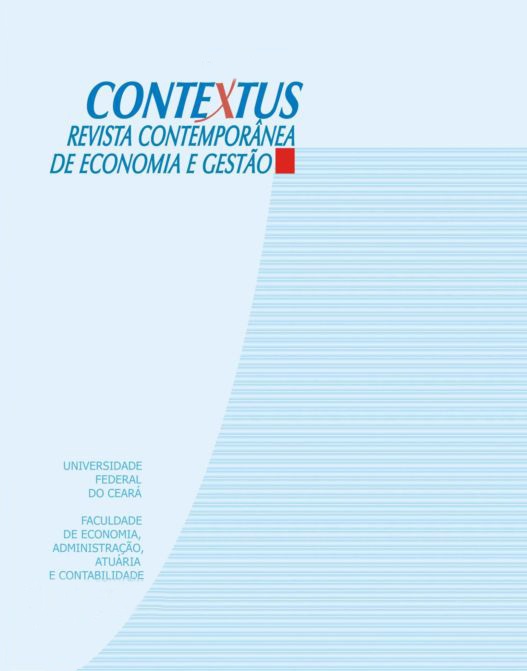AMIZADE, PRAZER E FELICIDADE: RELAÇÕES ENTRE ATRIBUTOS E VALORES NA ÓTICA DE CONSUMIDORES DE COMIDA JAPONESA
DOI:
https://doi.org/10.19094/contextus.v10i1.320Keywords:
comportamento do consumidor, comida japonesa,Abstract
Amizade, Prazer e Felicidade: Relações Entre Atributos e Valores Na Ótica de Consumidores de Comida Japonesa
Este trabalho tem como objetivo analisar a relação entre atributos e valores percebida entre os consumidores de comida japonesa de Fortaleza. A pesquisa tem em sua sustentação teórica abordagens sobre o comportamento do consumidor, valores e na Teoria da Cadeia de Meios e Fins (Means end chain - MEC). Foram realizadas trinta entrevistas em profundidade com consumidores de comida japonesa da cidade de Fortaleza entre os meses de novembro de 2008 e abril de 2009. A técnica aplicada é a laddering, alicerçada na Teoria MEC, com o conceito central de ‘escada de mão’, explorando os três níveis: atributos, consequências e valores. Essa técnica proporcionou a construção de uma matriz de implicação e de um mapa hierárquico de valor, permitindo confirmar os elementos, atributos, consequências e valores, que caracterizam o comportamento do consumidor orientado para o prazer e satisfação pessoal. O resultado da pesquisa evidenciou, entre os consumidores, valores individualistas como: abertura, vida excitante, satisfação, prazer, felicidade, auto-estima e relação afetiva, amizade. Esses valores reafirmam a busca por atingir a meta pessoal. Pela análise do mapa hierárquico de valores, pode-se concluir que esses valores estão relacionados com atributos percebidos pelo consumidor, tais como: ambiente do restaurante, qualidade, comida crua e exótica, cheiro, cor e sabor típicos.
Palavras-chave: Comportamento do consumidor. Comida japonesa. Valores. Cadeia de meios e fins. Laddering.
Friendship, Pleasure and Happiness: Relations between attributes and values from the viewpoint of Japanese Food Consumers
ABSTRACT
This paper aims to analyze the relation between attributes and values perceived among the consumers of Japanese food in Fortaleza, Brazil. The research is theoretically based upon consumer behavior approaches, values and Means End Chain Theory (MEC). There were made thirty in depth interviews with Japanese food consumers in Fortaleza city, between November 2008 and April 2009. The applied technique was laddering, that is based on MEC Theory, with the central concept of ‘hand ladder’, exploring three levels: attributes, consequences and values. This technique allowed to build an implication matrix and a hierarchical value map, which confirmed elements, attributes, consequences and values that characterize the behavior of the consumer-oriented pleasure and personal satisfaction. The results evidence, among the consumers, individualistic values as: openness, exciting life, satisfaction, pleasure, happiness, self-esteem and affective relationship, friendship. These values confirm their look for achieving personal goal. Through the analysis of the hierarchical value map, it may be concluded that these values are related with attributes perceived by the consumer, such as: restaurant environment, quality, raw and exotic food, typical smell, color and flavor.
Keywords: Consumer behavior. Japanese food. Values. Means end chain. Laddering.
Downloads
Downloads
Published
How to Cite
Issue
Section
License
The authors, while doing the submission, accept the notice below:
We authors hold the copyright related to our paper and transfer Contextus journal the right for the first publication with a Creative Commons’ international license of the modality Attribution – Non-commercial 4.0, which in turn allows the paper to be shared providing that both the authorship and the journal’s right for initial release are acknowledged.
Furthermore, we are aware of our permission to take part in additional contracts independently for non-exclusive distribution of the version of our work published in this journal (e.g. publishing it in an institutional repository or as a book chapter), while acknowledging both the authorship and the journal’s initial publication.
We also certify that the paper is original and up to this date has not been released in any other journal, Brazilian or of another nationality, either in Portuguese or another language, as well as it has not been sent for simultaneous publication in other journals.
Last, we not only know that plagiarism is not tolerated by Contextus but also certify the paper presents the sources of passages from cited works, including those authored by ourselves.









3.png)


1.jpg)



1.jpg)


1.jpg)






.jpg)



1.jpg)

1.jpg)


1.jpg)

1.jpg)
1.jpg)
2.png)




1.jpg)
2.jpg)

1.jpg)





1.jpg)


1.jpg)
1.jpg)
